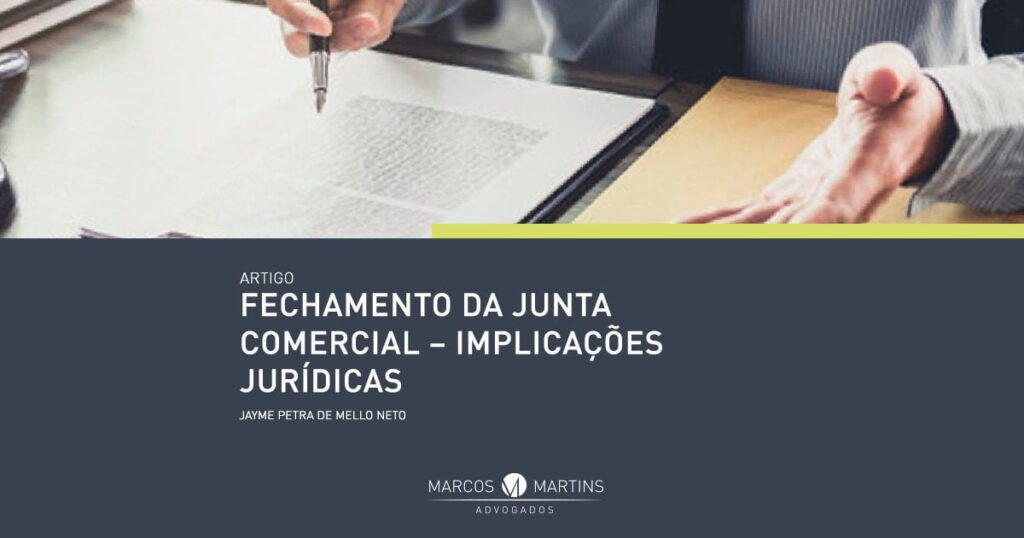Jayme Petra de Mello Neto
Lawyer at Marcos Martins Advogados
As of March 23, 2020, the Board of Trade of the State of São Paulo announced the suspension of all its processes and procedures, even those that were pending until that date.
In addition to causing a direct impact on business activity, which depends on the services of the Board for the purposes of operationalizing companies, being the starting point for compliance with a series of ancillary obligations, even in other areas, other than just Corporate Law.
Registration with the Board of Trade is a prerequisite for other registrations, such as tax, social security and even regulatory registrations for activities that require government authorization.
Although registration with the Board of Trade may seem at first glance to be a simple and inefficient bureaucracy, it is often forgotten that business registration is the cause of a series of relevant legal effects.
We draw attention to two of them:
1- Start of Legal Personality: The registration act is the birthmark of legal personality. This means that before the registration act, relations between partners and with stakeholders are not in fact attributable to the company, but rather to the partners as individuals.
This means that the legal entity will not have been “born” and, as a consequence, there will be no business establishment – in other words, the company’s assets will not yet be separated from those of the partners.
2- Liability of the partners: In the same sense, as long as the company does not exist in a legal sense, the partners will be unlimitedly liable for the acts and business that the common (depersonalized) company carries out. This is the natural consequence of the lack of legal personality and the new entity’s lack of assets.
Many companies, understood here in the functional sense, as organized activity on the factors of production for the generation of goods or services, will end up not even leaving the volitional plan of their partners, who, in an already critical situation, will adopt the more comfortable situation of waiting for normality to be re-established, undermining the entrepreneurial spirit.
An entrepreneur’s risk is not an extreme measure. It stems from certain parameters of legal certainty, especially those relating to limits of liability. At this critical moment, leaving a minimum of security in place means, in fact, paralyzing economic activities, even those that are supposed to be born in pandemic scenarios.
3- Tax irregularities: Another extremely important point that the lack of registration causes is irregularity before other bodies. Not only for companies in the process of being created, but also for those that already exist and need to change some of their statuses.
For example, in the case of a change in the tax domicile of a subsidiary with a high level of business activity, the lack of registration with the Board of Trade will result in the company being unable to change its tax registration, which will inevitably lead to the tax illegality of the business generated in that unit. It will not be possible to issue invoices, register auxiliary obligations and other impositions, which in certain cases may even amount to criminal conduct, with heavy penalties, both pecuniary and personal.
4- Regulatory disqualification: although at critical times certain regulatory obligations are mitigated, especially those of companies that pay attention to essential rights, the fact is that it will not even be possible to start a precarious operation due to the lack of existence of the legal entity.
This could cause major shocks in the supply chain at this critical moment, leading to a worsening of the economic situation.
In any case, the sudden complete closure of the Juntas could pose legal challenges for both lawyers and the judiciary, which in an extreme situation could be called upon to grant relief of a supplementary nature, ipso facto recognizing the existence of the legal entity and all its effects, despite the absence of the registration act.
[rock-convert-pdf id=”14184″]








